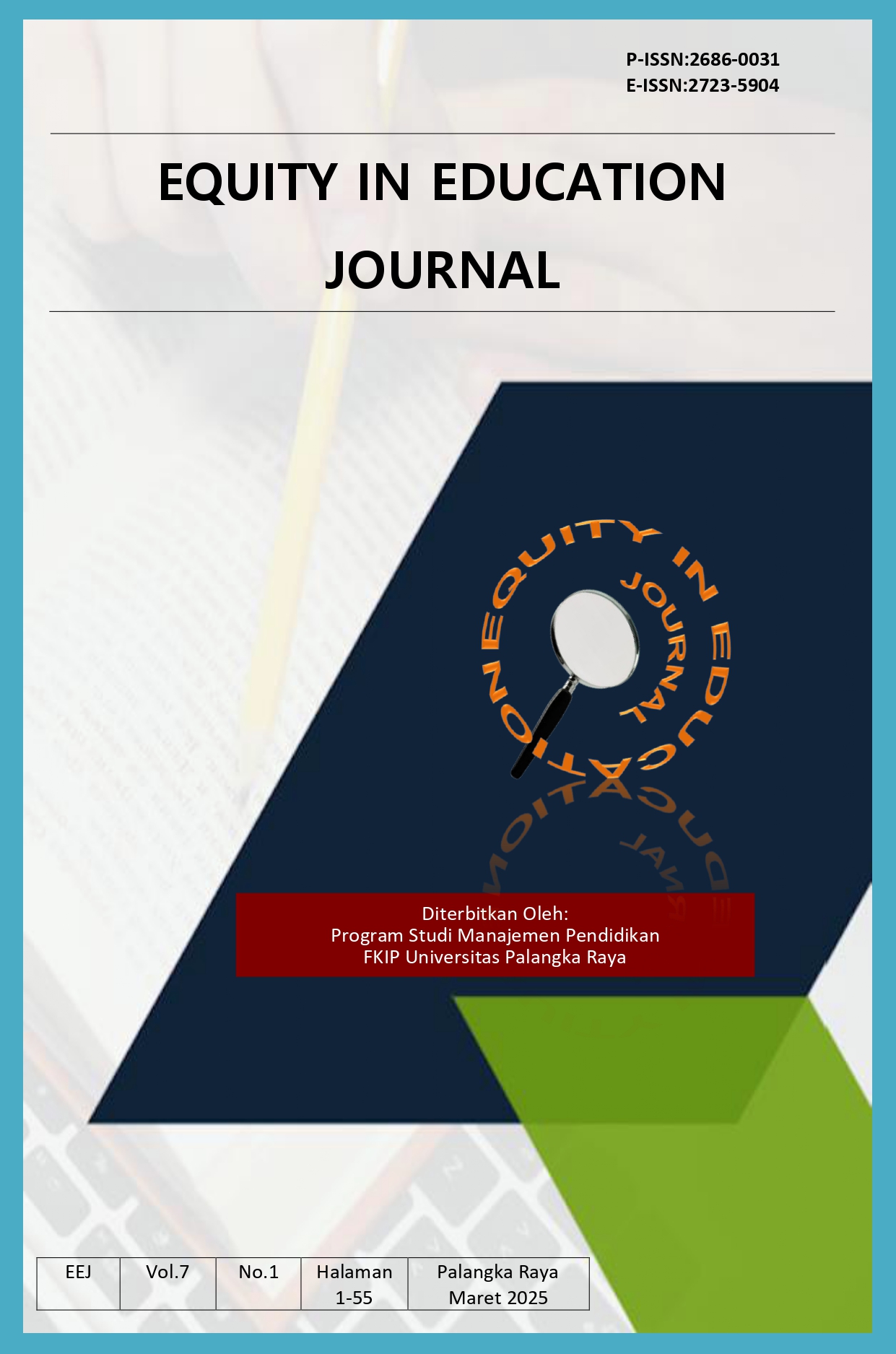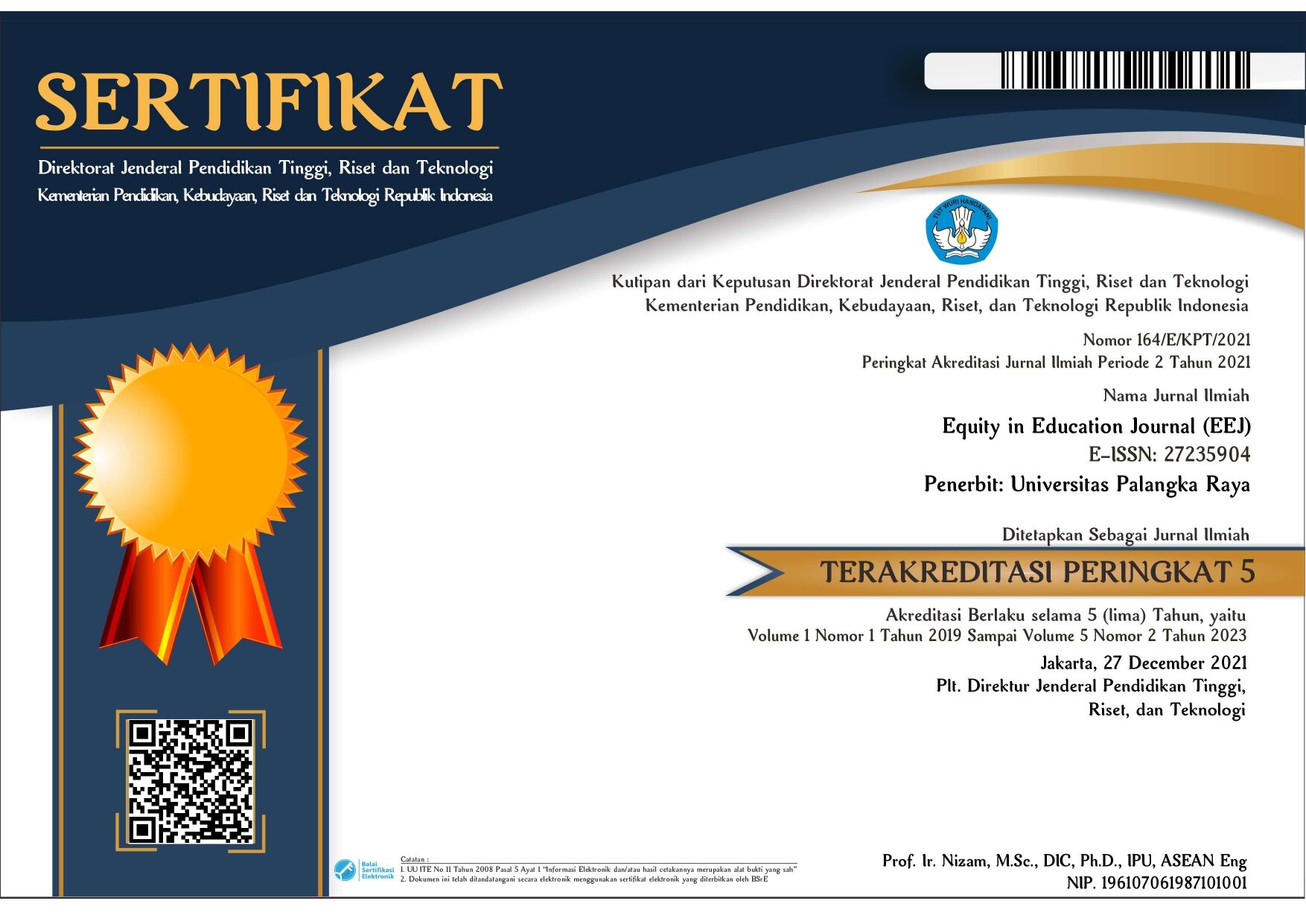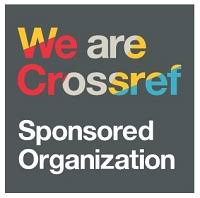PERAN TEKNOLOGI DALAM PENGELOLAAN PENDIDIKAN INKLUSIF
DOI:
https://doi.org/10.37304/eej.v7i1.18956Keywords:
Pendidikan Inklusif, Teknologi, Pengelolaan Pendidikan, Aksesibilitas, SLBN Jepara.Abstract
This study aims to examine the role of technology in optimizing inclusive education management at the Jepara State Special School (SLB), particularly through adaptive learning applications, digital assistive devices, and communication platforms. Using a qualitative approach, this study describes the contribution of technology to the effectiveness of learning management and responsive decision-making. The research findings indicate that technology supports flexible and real-time learning processes; however, its implementation still faces challenges related to infrastructure, teachers' limited digital literacy, and access disparities in certain areas. Therefore, policies ensuring equitable access, ongoing training for educators, and the development of adaptive curricula are necessary. Optimizing the role of technology in inclusive education at Jepara State SLBs can create a more equitable and efficient learning environment and help achieve the goal of providing education for all.
Downloads
References
Azizah, N., & Hendriani, W. (2024). Implementasi Penggunaan Teknologi Digital sebagai Media Pembelajaran Pada Pendidikan Inklusi di Indonesia. Jurnal Educatio FKIP UNMA, 10(2), 644–651. https://doi.org/10.31949/educatio.v10i2.8586
Bantali, A., Arjuna, A., Munadia, M., & Sazulhaq, A. (2025). Analisis kebijakan pendidikan inklusif di sekolah dasar: Tantangan dan peluang di era digital di Jawa Tengah. Jurnal Manajemen dan Pendidikan Dasar, 5(2), 690–710. https://doi.org/10.58578/arzusin.v5i2.5372
Bogdan, R. C., & Biklen, S. K. (2007). Qualitative research for education: An introduction to theories and methods (5th ed.). Pearson Education.
Dwita, R., & Zulfitria, Z. (2024). Teknologi pendidikan dalam Kurikulum Merdeka Belajar: Membangun masa depan pendidikan yang inklusif dan berdaya saing. Cendikia: Jurnal Pendidikan dan Pengajaran, 2(6), 26–34. https://jurnal.kolibi.org/index.php/cendikia/article/view/1643
Israel, M., & Hay, I. (2006). Research ethics for social scientists: Between ethical conduct and regulatory compliance. SAGE Publications.
Masruroh, U., Firdaus, R., Fitriawan, H., & Yulianti, D. (2021). Development study of technology-based adaptive learning modules for students with special needs. Jurnal Teknologi Pendidikan (JTP), 9(3), Article e12250. https://doi.org/10.33394/jtp.v9i3.12250
Miles, M. B., Huberman, A. M., & Saldana, J. (2014). Qualitative data analysis: A methods sourcebook (3rd ed.). SAGE Publications.
Moleong, L. J. (2017). Metodologi penelitian kualitatif (Edisi Revisi). PT Remaja Rosdakarya.
Patton, M. Q. (2015). Qualitative research & evaluation methods: Integrating theory and practice (4th ed.). SAGE Publications.
Rusdiana, A. (2025). Pelatihan Guru dalam Pemanfaatan Teknologi untuk Pendidikan Inklusif. Diterima dari https://www.kompasiana.com/ahmad58914/6798de87c925c465610d2bc2/pelatihan-guru-dalam-pemanfaatan-teknologi-untuk-pendidikan-inklusif
Sari, R., & Rahman, A. (2022). Impact of digital learning on student achievement in remote areas: A case study in IndonesiaRosita, T., Rochyadi, E., & Sunardi. (2020). Teknologi asistif dalam pendidikan inklusif. COLLASE: Journal of Elementary Education, 3(6), 672–681. https://doi.org/10.22460/collase.v3i6.3983
Suwahyo, B. W., Setyosari, P., & Praherdiono, H. (2022). Pemanfaatan teknologi asistif dalam pendidikan inklusif. Edcomtech: Jurnal Kajian Teknologi Pendidikan, 7(1), 51–63. https://doi.org/10.17977/um039v7i12022p051
Taufiqurrahman, M. (2022). Penerapan teknologi dalam pendidikan inklusif: Tantangan dan solusi. PROGRESSA: Journal of Islamic Religious Instruction, 6(1), 1–15. https://doi.org/10.32616/pgr.v6.1.454.1-15
Togni, J. (2025). Development of an Inclusive Educational Platform Using Open Technologies and Machine Learning: A Case Study on Accessibility Enhancement. arXiv preprint arXiv:2503.15501.arXiv
Universitas Negeri Surabaya (Unesa). (2024). Teknologi sebagai Jembatan: Meningkatkan Pendidikan Inklusif dan Memperjuangkan Hak Penyandang Disabilitas. Diterima dari: https://plb.fip.unesa.ac.id/post/teknologi-sebagai-jembatan-meningkatkan-pendidikan-inklusif-dan-memperjuangkan-hak-penyandang-disabilitas
Uygur, M., Ayçiçek, B., Doğrul, H., & Yanpar Yelken, T. (2020). Investigating Stakeholders’ Views on Technology Integration: The Role of Educational Leadership for Sustainable Inclusive Education. Sustainability, 12(24), 10354. https://doi.org/10.3390/su122410354
Wohlfart, O., & Wagner, I. (2023). Teachers’ role in digitalizing education: An umbrella review. Educational Technology Research and Development, 71(1), 339–365. https://doi.org/10.1007/s11423-022-10166-0
Yenduri, G., Kaluri, R., Rajput, D. S., Lakshmanna, K., Gadekallu, T. R., & Mahmud, M. (2023). From assistive technologies to metaverse—Technologies in inclusive higher education for students with specific learning difficulties: A review. IEEE Access, 11, 64907–64927. https://doi.org/10.1109/ACCESS.2023.3289496
Downloads
Published
How to Cite
Issue
Section
License
Copyright (c) 2025 Setyawati, Ahmad Hilal Madjdi, Ahmad Hariyadi

This work is licensed under a Creative Commons Attribution 4.0 International License.










